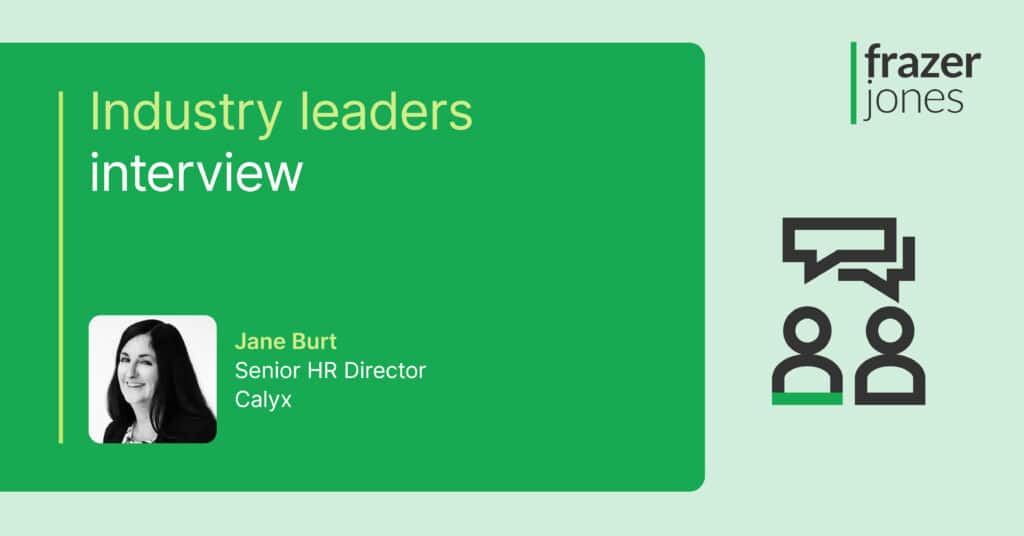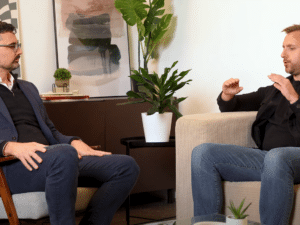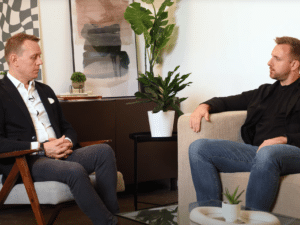Interview with Jane Burt: becoming a Trustee helps you ask the business questions that really matter

As part of our Trustee interview series, we sat down with Jane Burt – Senior Director of HR for Calyx, a company that helps the global bio-pharmaceutical industry deliver much-needed treatments to patients.
Jane is also an external advisor to the People Committee for Samaritans and has been a Trustee for CLIC Sargent (now Young Lives vs Cancer) and bss, an outsourcer of public and customer contact services.
She was also a Trustee and member of the Business and Management Committee for charity Mental Health Media which merged with MIND.
Jane – you are a hugely accomplished HR leader with a great track record. Can you tell us more about what your journey has been like professionally?
My background is in the private sector and I have worked in a variety of global HR leadership roles within the energy, life science and financial services sectors. These have all had different challenges ranging from start-ups, growth and transformation to cost containment and crisis management.
I am currently Senior Director, HR for Calyx – a private equity owned business. I’m in a global HR role and the last two years have focused on setting up the stand-alone business which was separated from the parent company.
This has included implementing a new corporate culture and identity, moving to a new HRIS, building the HR team, working with an outsource provider for HR operational support and a myriad of other activities!
As you know, this interview series is to inspire HR professionals to become Trustees and your story is certainly aspirational. Why did you become a Trustee?
I have undertaken some type of voluntary work ever since I can remember. In particular I had a number of roles within Samaritans at local, regional and national level.
I was inspired to think about moving into a Trustee role by colleagues at Samaritans and that led to my first appointment with a small mental health charity who were looking for someone with HR experience. It seemed that my paid and unpaid experience made a good fit for the role.
From there I moved on to other charities with different causes but all facing similar challenges such as fundraising, talent attraction and seeing the need for more services but having finite resources.
And what have your experiences been?
I have been a Trustee and held other roles, such as chairing committees with several charities – some of which have had a more commercial focus but all meeting needs that would otherwise go unfilled.
I was a Trustee for CLIC Sargent, now Young Lives v Cancer, and a member of the Business and Management Committee for MIND for a number of years.
Currently, I am an external advisor to the People Committee for Samaritans. I was also a Trustee of bss, an outsourcer of public and customer contact services, and a Trustee of the charity Mental Health Media which merged with MIND.
As a global HR director, an important thing that I bring to the table is the ability to think about matters in a different way from other board members as I have an alternative frame of reference. I can ask questions that really focus on what will make a difference and challenge how the charity will be able to deliver on its strategy and plans.
It is also important that I am able to contribute by using examples and information from other industries. Such an approach requires not only a sound understanding of the charity, but also a wider knowledge of how other businesses have approached similar issues.
Each appointment has helped me to develop my own skills and knowledge and proved a rewarding experience. While the roles have been predominantly non-executive, I have on a number of occasions been asked to step in to provide ad-hoc support.
Being a Trustee means that the decisions that I make as a board member will have a direct impact on the quality of people’s lives. I help to decide where money is spent, support fundraising strategies and agree financial plans, which can all make a real difference.
A key challenge is, undoubtedly, finding the time to attend meetings and other activities. However the benefits significantly outweigh the costs. I believe that the experience has helped me to bring a new perspective to my “day job”.
I’ve met some fantastic, committed, enthusiastic people and I’ve found every moment to be rewarding and fulfilling. In my experience, the personal and professional rewards of becoming a charity Trustee are high. There is a time commitment, yes, but if your employer is able to think strategically, they will recognise the benefits of bringing new skills and experience back into the business.
What has been the most rewarding or humbling experience?
There have been many over the years and my experience with Samaritans and MIND gave me a real appreciation of the emotional challenges that people go through in their lives. It was a privilege to meet the children, young people and parents as part of my role at CLIC Sargent/Young People vs Cancer.
They have been through so much and faced the physical and emotional challenges with courage, fortitude and good humour. Young people often need support once their treatment has ended and many miss out on significant chunks of their education.
Moreover, as a result of their treatment some also end up with disabilities and it is important that they are not held back by their experience of cancer.
I have learnt so much from all my roles and it makes me really appreciate that when I grumble about a bad day at work. Actually, it’s nothing in comparison!
What has being a Trustee and advisor taught you about yourself?
It’s taught me that I have transferable skills that help me contribute to great causes. Being a Trustee is not only a valuable way of contributing to the third sector – it can also be an interesting and rewarding experience, helping to broaden your horizons and grow your expertise.
How could they go about becoming a Trustee aside our Frazer Jones Trustee Network?
Think about what kind of charity would interest you and it’s worth approaching them directly to say that you’re interested. Due to good governance, there is a turnover of Trustees on a regular basis so you can find out when the next process will start.
Networking always works too and the hiring process is usually similar to for paid roles, so third sector and The Guardian advertise Trustee roles for a range of charity sizes. Also Trustees Unlimited and Russam advertise a range of Trustee roles.
Lastly would you have any advice for anyone wanting to become a Trustee?
It’s a significant commitment to make, even though it’s not a paid role. Research thoroughly and ensure that you can make the time to attend meetings and contribute – every Trustee role is critical to the charity.
I would recommend talking to existing and former Trustees to learn from their experiences and to think about the skills and value that you could add. As with all jobs, elements such as the business’s size and strategy will all shape the role so do your homework before taking on an appointment.
Lastly, go for it – I did and I’ve never looked back!


